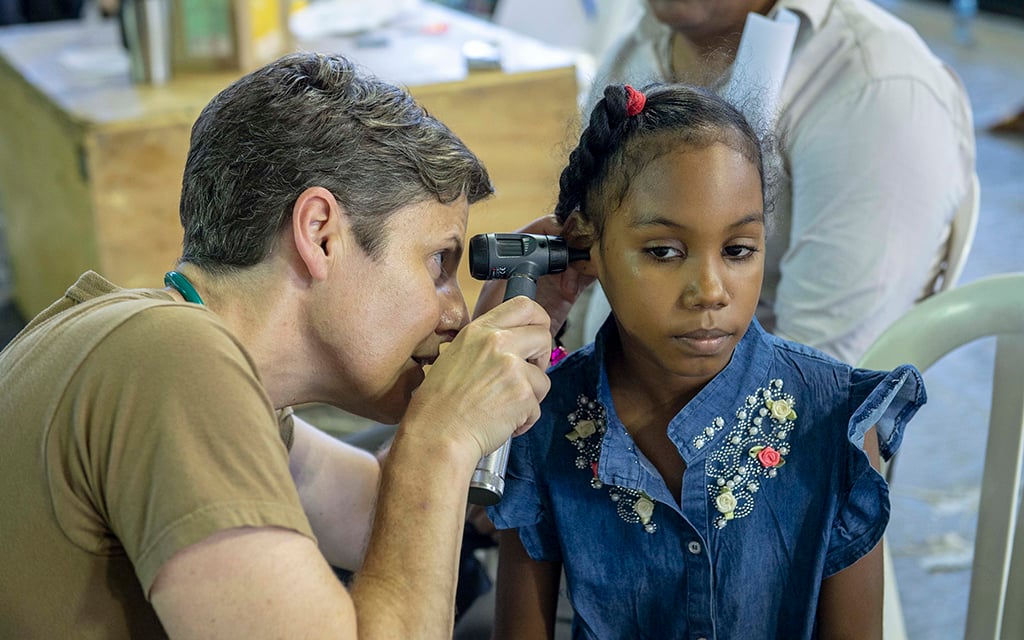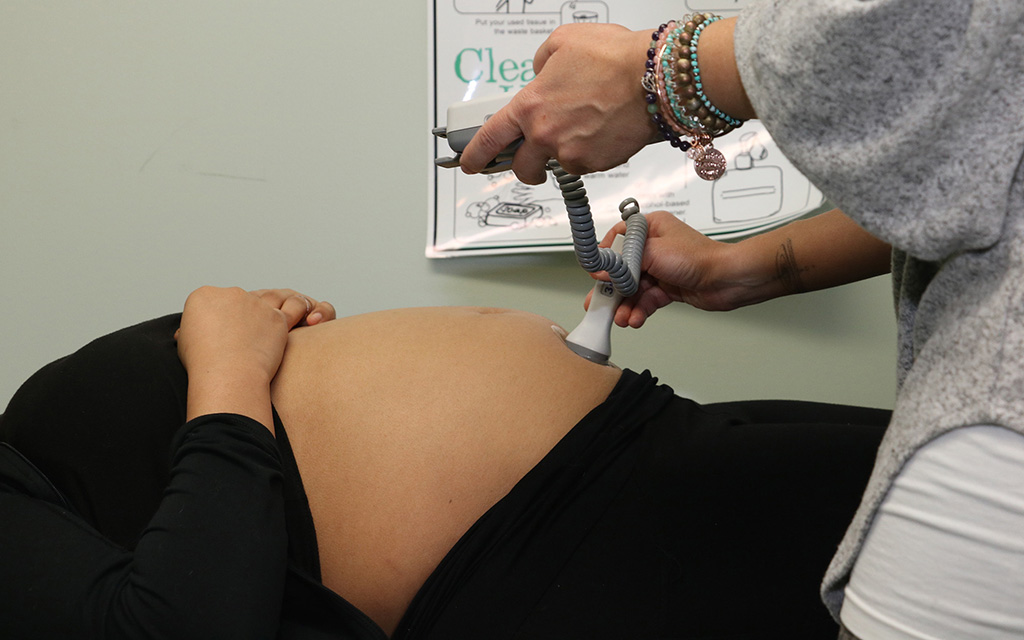
The number of people with health insurance in Arizona and the U.S. rose last year, after pandemic-era expansion of coverage. But those numbers have likely dropped sharply since then, as states phase out pandemic programs. In this 2019 file photo, a doctor with the hospital ship USNS Comfort gives a Dominican girl a checkup. (Photo by Petty Officer 2nd Class Bobby J. Siens/U.S. Navy Southern Command)
WASHINGTON – The number of Arizonans with health insurance rose in 2022, a post-pandemic bump that experts say has likely turned sharply south in the year since, as COVID-19 benefits have been phased out.
Recent data from the Census Bureau shows that the percentage of Arizonans with health insurance rose from 89.3% in 2021 to 89.7% in 2022. While that is an improvement, the state still lags slightly behind the nation, where coverage rose 0.7% from 91.3% of Americans insured to 92% in that period.
Experts say that rise was likely due to increased availability of Medicaid during the pandemic health emergency. But as the country has moved away from COVID-19 programs and protocols in the past year, one change is that states are no longer prohibited from removing people from their Medicaid rolls.
Arizona’s Medicaid program, the Arizona Health Care Cost Containment System, reported this month that it has removed 289,184 people from the rolls since starting disenrollment earlier this year. AHCCCS has estimated that as many as 500,000 Arizonans could ultimately be dropped.
Nationally, anywhere from 8 million to 24 million Americans could lose coverage, according to estimates by KFF, the nonprofit formerly known as the Kaiser Family Foundation.
Losing coverage might come as a surprise to some people who are currently covered, said Dr. Daniel Derksen, an associate vice president at University of Arizona Health Sciences.
“It often takes six or eight months for people to figure it out,” Derksen said. “They find out when they go for their annual visit or when they have to go to the emergency room for some reason and It’s like, ‘Oh, I thought I had coverage,’ and they don’t anymore.”
Analysts said the drop in health insurance could be worse, but is likely being propped up by the current high levels of employment. Arizona’s unemployment rate has hovered near historic lows of 3.5% for much of this year, and stood at an estimated 3.8% in August, the most recent month for which numbers are available from the U.S. Bureau of Labor Statistics.
“We are employing more Arizonans and we have a lower unemployment rate,” said Chad Heinrich, the president and CEO of Arizonans for Affordable Health Coverage.”When more people are working they’re also receiving that benefit through their employers.”
The Census Bureau report said that while the percentage of Arizonans covered under Medicaid decreased from 21.4% in 2021 to 20.8% in 2022, the share of state residents who were covered through their workplace rose from 50.9% to 51.2%. The remainder of those covered in the state purchased it privately.
Derksen said that many people lost their health insurance when they lost their jobs during the pandemic, which is where the expansion of Medicaid helped.
“Fortunately for many of those individuals, when they lost their employment and lost their employer sponsored insurance, they were now eligible for Medicaid,” he said. “So there was this safety net through the public insurance offered by Medicaid.”
Morgan Finkelstein, state director for Protect Our Care Arizona, said another factor helping with insurance coverage has been the Affordable Care Act. Enacted in 2010, it mandated that Americans have a minimum amount of health care coverage but also provided financial assistance to help make insurance more affordable.
“Extending open enrollment and increasing outreach and enrollment assistance has made coverage more affordable and accessible than in the past for Arizona families, and especially for families purchasing their own coverage,” Finkelstein said.
Arizona started pulling the Medicaid safety net away on April 1. While enrollment in AHCCCS is expected to continue falling through the start of 2024, advocates like Finkelstein said it’s important to keep working for expanded coverage.
“When we take care of people, we see that our country thrives,” Finkelstein said. “People are able to go about their day-to-day lives with ease, and more successfully, when they don’t have to worry about cutting costs for life-saving medication or maybe checking out an ailment that they don’t have insurance coverage.”



